Periods and Triathlon
Nov 25, 2021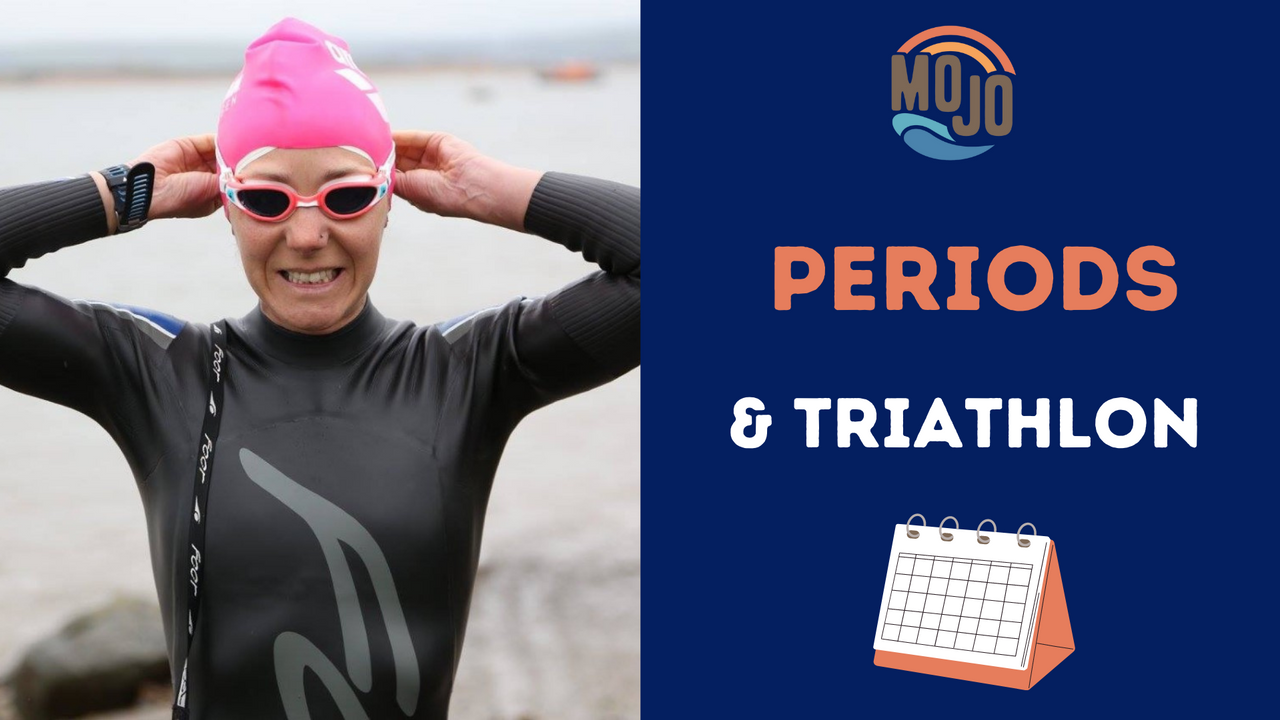
Hello!
Periods are a well discussed topic currently in the fitness and triathlon world.
Hallelujah I say! It's great that periods, and other factors that affect active women and girls, are being talked about more.
From the gym changing rooms of secondary schools to club coaches in local running groups, we need to be talking about this for a number of reasons:
* Help women and girls to see it as a normal function of a healthy body
* To dispel the myth that you can't do sport or perform at your best when you have your period.
* To educate those who have previously been unaware of the effect of periods/hormones on active women and girls
* To spark awareness of issues with menstrual cycles, with symptoms that are not 'normal' such as loosing your period, heavy periods, low energy and pain. That way they can be identified early and dealt with.
But as with a lot of new info and buzz words that fly around, they can leave you feeling quite confused.
Here at Mojo we arent a fan of confusion in our sport, the more simple the better, life is complicated enough!
So here is a no nonsense intro to your menstrual cycle in relation to active women. Of course there is much more to discuss on this topic, but this is just an intro. We looking at why, how and when to track your cycle, and how you can use this to train at your best.
NOTE: For this blog, I am writing about women with menstrual cycles who are not on contraception, so they have naturally occurring periods. I will go into contraceptives more in the next blog.
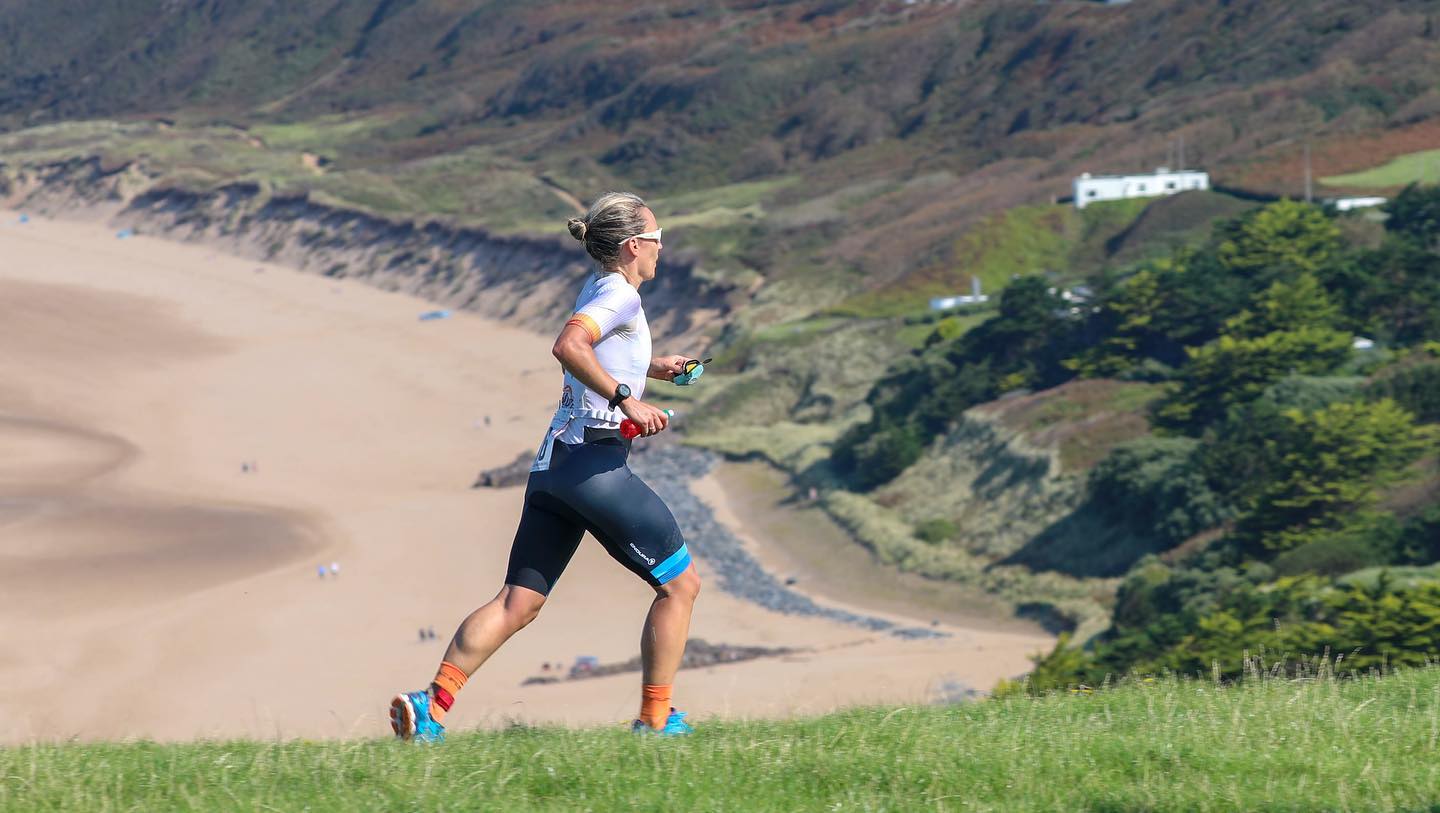
Looking at your menstrual cycle, there are 2 phases. A high hormone phase called the follicular phase. That’s day 1 of bleeding to ovulation (around 14 days). Then it’s the low hormone phase until the first day of bleeding again. That’s the follicular phase.
In training, you will notice things that come easier in one phase than the other. You will notice you are more hungry in one phase, and you can load more training on in one phase without getting tired. Then you're super tired another time.
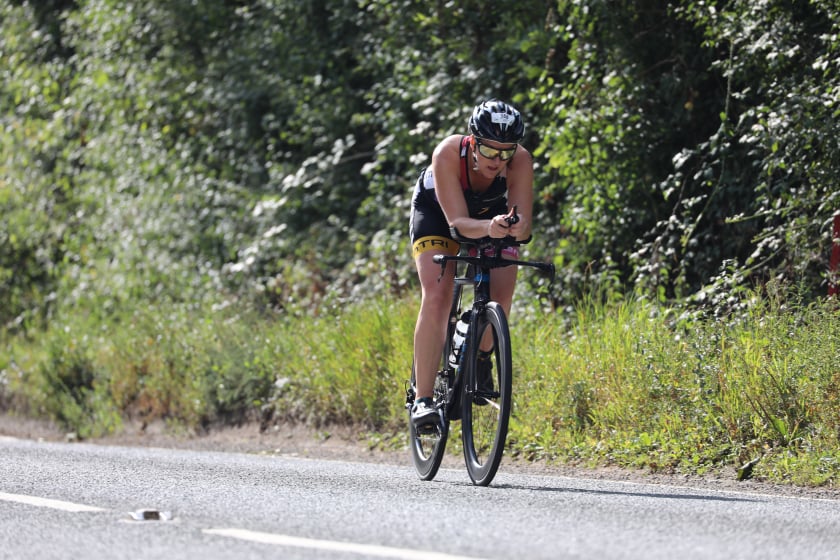
But until you start to track your cycle you won't know if it's your menstrual cycle, or other factors such as poor sleep, work stress, food choices etc.
In this short blog, its not possible to go through everything on periods. But I will be doing much more of these short blogs for you in the future to help you learn as much as you can about your menstrual cycle and how it affects your training and racing.
Why is it important?
So why track your periods, and have more knowledge on your menstrual cycle? Well firstly it's all about your overall health. And that's pretty important right?
Plus knowledge is power!
Your period is an ergogenic aid. That means it helps by telling you how well you are. If you don’t have your period and you normally do, it tells you something's up. It's not good to loose your period and you need to get this checked out.
Tracking your cycle is important as you will understand your body better, have more control over it, and hey why not, it's your body!
From a triathlon perspective, you will also be able to have more knowledge on when to schedule heavy training days, light days, rest days, when to lift weights, when to go long and steady. It’s a great way to really use your body's cycle to guide your training choices, making the most of when your body is more ready to accept these differing types of training.
You can also track where you may feel tired or flat, and track it back to the time of your cycle to make more sense of why you are feeling this way.

Norms
So 28-35 days is considered a normal cycle, counted from day 1 of bleeding to the next day of bleeding. Periods stay regular for the duration of our 20's, 30's, 40's and sometimes into your 50’s. Menopause happens around 45-54 yrs old, average is 51 yrs. The 5 or so years before that is peri menopause and throughout the whole pre menopause phase your periods can fluctuate (and then of course naturally stop when you reach menopause).
The normal duration of period is 4-8 days. I only say the ‘normal’ word as it helps any of you who may sit outside of the 'norm' so you know you may need to do some extra investigating into why yours is not considered normal. So loss of period, irregular or heavy periods are not considered the norm, and you may wish to investigate further with your GP.
Heavy periods are a pain in may ways, and can affect you as an athlete, from inconvenience, to loss of nutrients that you need for performance.
Normal blood loss is 35-40ml of blood. Some can reach 75-90 ml. The later is known as very heavy bleeding and affects 25% of women, but 38% of active women/female athletes. (Possibly because active women are often on the edge of hormone fluctuation, but this is all still a little up for debate)
Don’t forget, until very recently, like the last 2-3 years, this wasn’t even talked about so the research is still coming out on a lot of topics involving women and sport (I know, sigh!)
So how does 75-90 ml look in terms of periods in everyday life life? Well using double sanitary products, changing tampons every 2 hours or less, having periods affect your day to day life. Things can be done to help you, so chat to your doctor and they may prescribe something, such as an IUD or other method to help you.
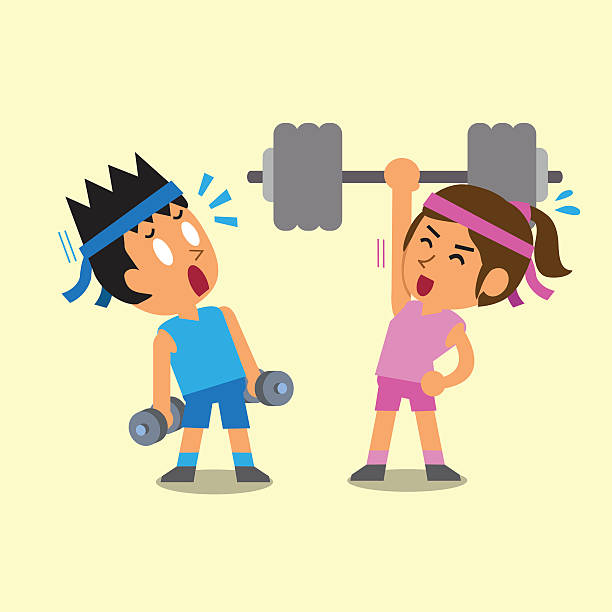
How to track?
There are lots of way to track your period. The easiest? You guessed it, simple pen and paper, diary, notepad. If you can track day 1 of bleeding as day 1 of period, AND also track your moods in the month, that will give you great insight about how your body copes with the hormone fluctuations.
You can also track using FemTech apps such as Fitr Woman or Wild AI
Of course if you have a coach it's great to share this info with them so they can help you make the most of the data to plan your training, recovery, and race day performance around your upcoming periods.
I agree it may be hard to speak to some coaches about this, but it's important, and it's their problem if they arent happy talking about it. Coaching is about the athlete and getting the best results, so do try to find a way to discuss this with your coach.
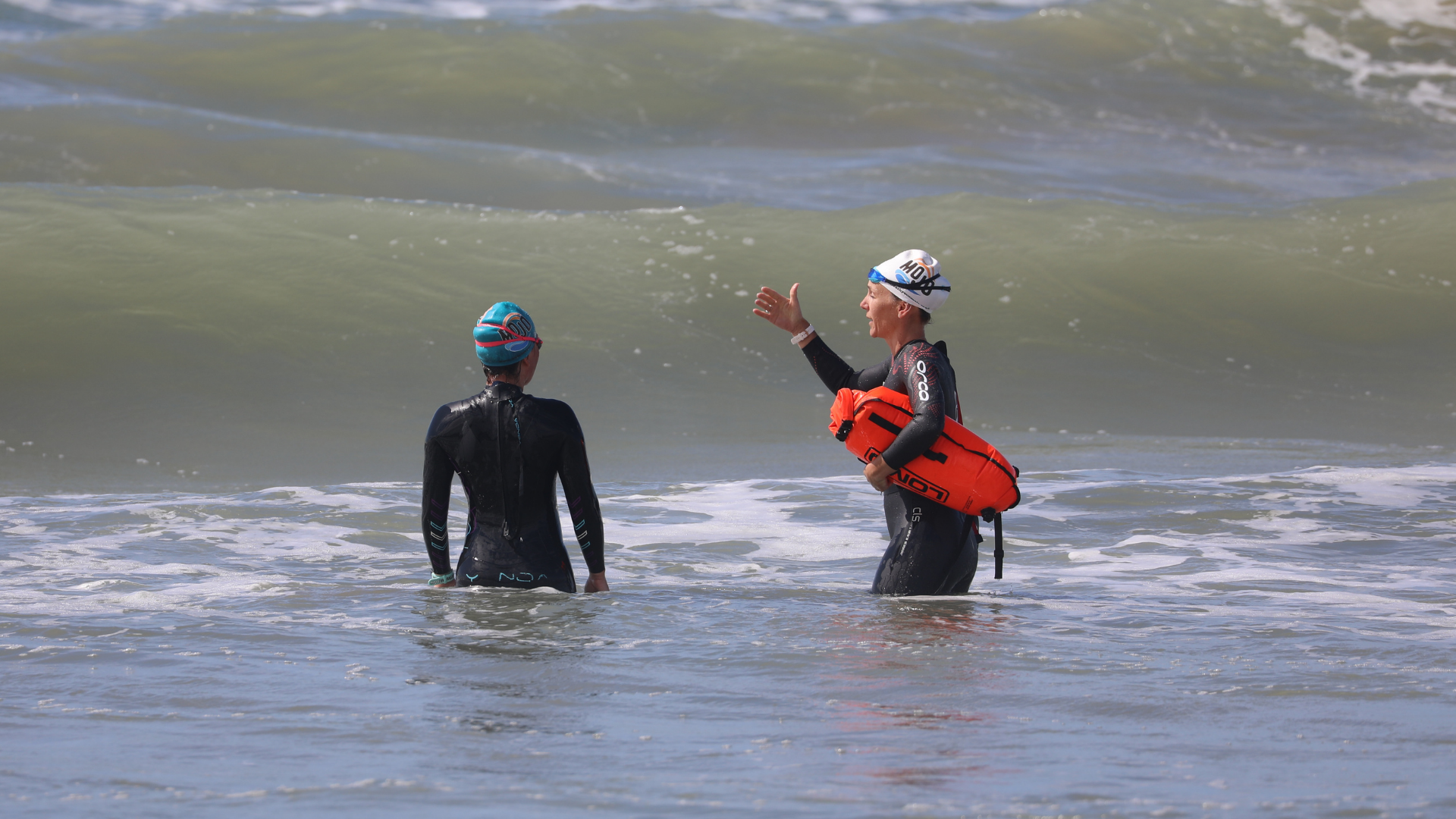
Race Day
I want to stress, there is NO bad day to have your race, even if day 1 of your period falls on race day.
It is a myth that having your period affects your performance on race day. What we can do is use the info we have to our advantage in training, then we are more ready for race day and turning up the fittest and best version of our athletic selves.
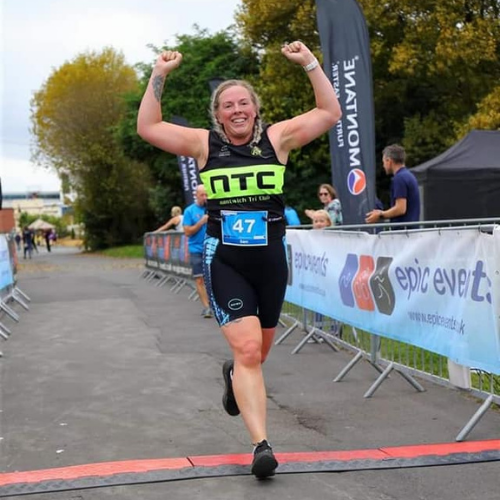
Training Clever!
In basic terms, during the first phase of your period will mean you are more ready for some heavy lifting, HIIT workouts and high volume. You will recover well and utilise this phase to get stronger.
Around ovulation (day 14 ish) you may feel flat, then have lots of energy, or the other way round. That is why it's good to track your moods and energy as well as just dates because we are all different in the way we respond to hormone changes.
Then the second part of the cycle you will really benefit from taking the foot off the gas, doing more steady state workouts, tempo sessions, then into more technique and stretching/maintenance sessions like yoga and Pilates. It's not 2 weeks off training though! You can use this time to work on the finer techniques of swim, bike and run, which are as important as the sessions you push really hard.
When do I start?
Well, how about NOW! Dig out your diary, pen and try to remember the date of your last period, and start tracking your moods. The sooner you get started the more data you have for planning your training or chatting to your coach.

What's next?
There are other aspects of your cycle such as using a contraceptive and how that affects your training, plus how you can work your training around the effects of peri and post menopause too. There's so many topics to cover, so I look forward to hearing what interests you the most. Either add a comment below, reply to an email, just let me know so I can continue with this as a topic for all Mojo subscribers.
Have a great day, train safe,


